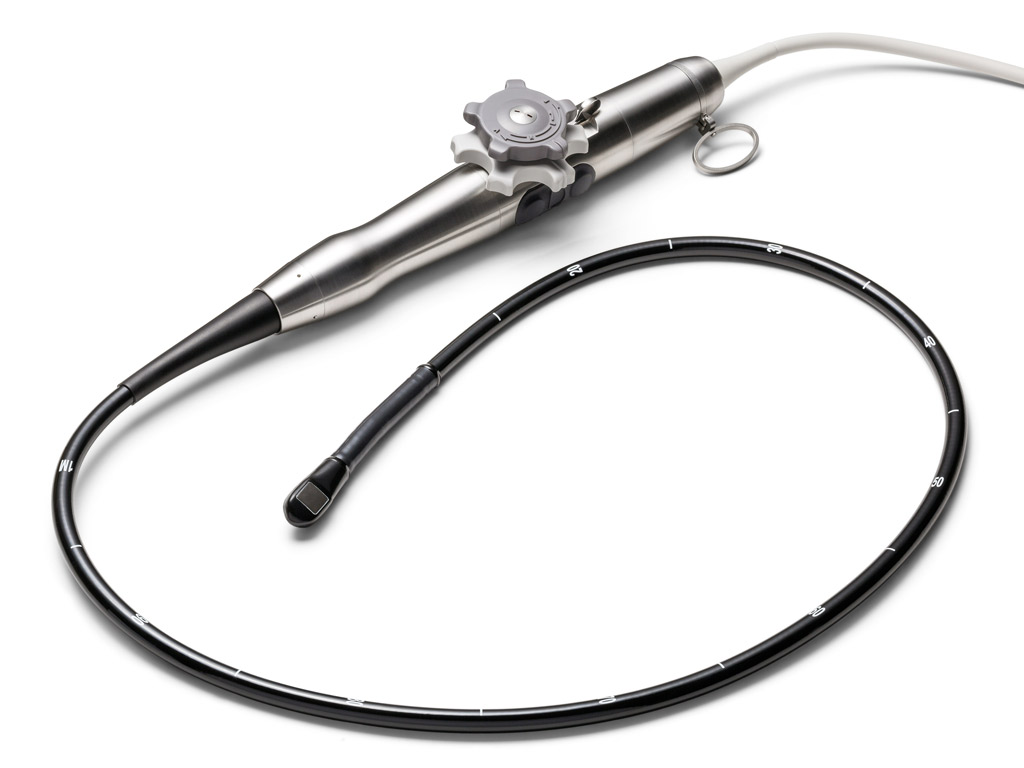
What is transesophageal echocardiography(TEE)?
Esophagus means food pipe. Transesophageal echocardiography (TEE) is a specialized 2D Echo study performed with a probe placed in the esophagus. As the esophagus situated just behind the heart, TEE gives insight into the heart structure and valves which is not possible by routine 2D echocardiography test done from outside the chest wall.
What are the indications?
- Blood clots in heart: Due to old age or diseases of valves increases chances of blood clot in atria and their appendages, These patients are at high risk of stroke.
- Patent foramen ovale (a defect/ hole in the inter atrial septum): It is one of the cause of unexplained stroke in young adults.
- Infection of cardiac valves and possible complications: Infective endocarditis is a potentially life threatening infection of heart valves. TEE offer better sensitivity than conventional echo for diagnosis of same, It can also detect complications like paravalvular abscess and leaks.
- Congenital heart defects : assess the size and rims of atrial septal defects and plan line of management. These defects can be closed non surgically with a device in suitable cases.
- Evaluation of prosthetic/ artificial cardiac valves: TEE has an edge over trans thoracic echo to asses cause of artificial cardiac valves dysfunction and their infections. .
- Rare cases of acute aortic dissection,
- Intra operative as a guide to cardiac surgeon for completion of repair
How to prepare for the test?
- Patients needs to fasting for at least 6 hours.
- Carry with you all the prior investigations and reports.
Undergoing the test:
A valid and informed consent is obtained from patient. Procedure will be explained to you. If there is any past history of swallowing difficulty or other problem of oesophagus , bring it to notice of doctor. All temporary dental and oral prosthesis are removed. A local anaesthetic agent is sprayed on the throat. ( Lignocain). It anaesthetizes the area and one does not feel pain. The patient is asked to lie on a bed on the left side. ECG electrodes are attached to your chest and arm. A bite block (mouth piece) will be held between the teeth. Through this mouth piece, the probe is introduced slowly across your throat into your food pipe. It is important to swallow the probe. You might experience some gagging during this process, but once the probe passes across the throat this sensation reduces and then you should continue slow and deep breaths till the procedure is completed. Once the echocardiographic examination with colour Doppler is over, the probe is gradually removed. Total duration of procedure is generally less than 10 min.
Consult doctor
What are post-test precautions?
One can feel pain and discomfort after procedure for a day. One should not
consume food till effect of anaesthetic has worn off. Avoid very hot or cold food for a day.
What are the risks or complications of TEE?
- Irritation in throat will subside within a day. .
- Minor complications are seen in less than 3%. They are transient hypoxia (decrease oxygen), hypotension (fall in blood pressure), hypertension (rise in blood pressure), bronchospasm, heart block, arrhythmias.
Major complications occurs in less than 0.3%. They include esophageal perforation, serious arrhythmia, congestive heart failure, laryngospasm and rarely death.


REPLY COMMENT